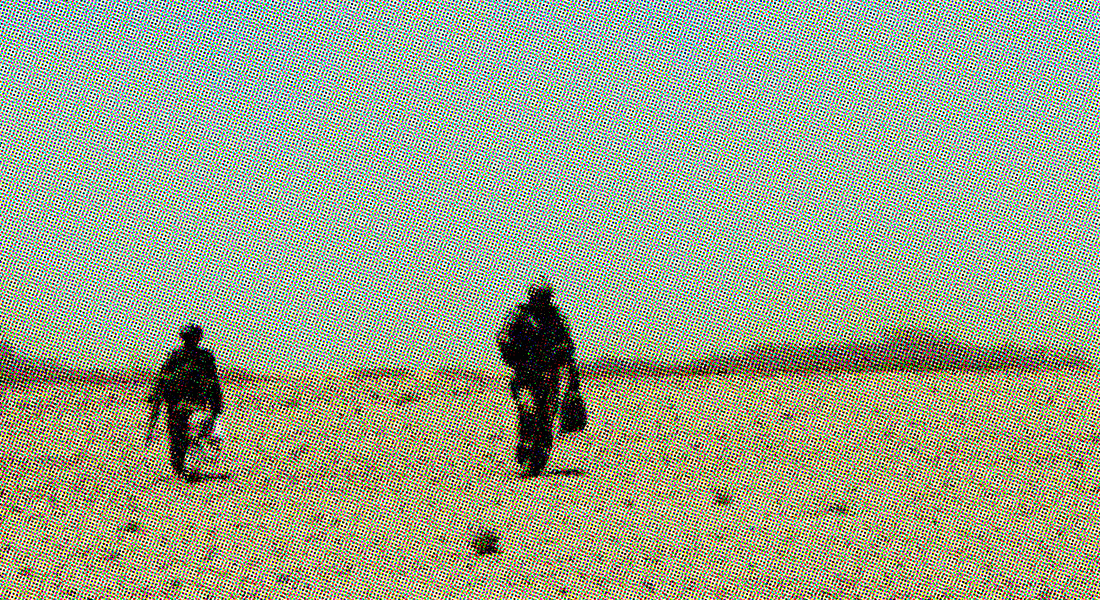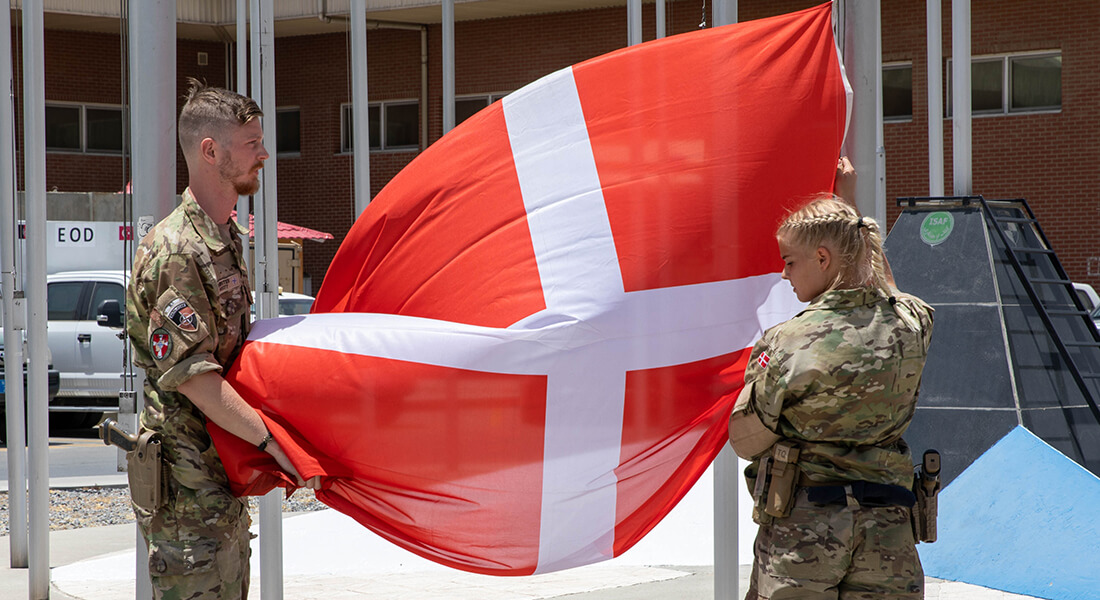No strategy behind Danish war effort in Afghanistan – we followed USA
When Denmark decided to participate in the war in Afghanistan just three months after the terrorist attacks 11 September 2001, it was an act of solidarity with the United States. The efforts were not part of a long-term foreign policy strategy, and the situation in Afghanistan played no role in the decision.

Al-Qaeda's terrorist attack in the USA 11 September 2001 was also an attack on Denmark's most important ally, and the desire to maintain a good relationship with the US was central to the Danish decision to contribute to the war against al-Qaeda and the Taliban regime in Afghanistan. Neither long-term strategic objectives, nor analyses of the conditions in Afghanistan had any significant influence on the decision to make a military contribution - this had already been negotiated with the USA through informal military and diplomatic channels just one month after the terrorist attacks.
This was the conclusion reached by the research-based investigation into the administrative and political processes that led to the Danish decisions to go to war in Kosovo, Iraq and Afghanistan. The findings were presented to the public in 2019 after two years of research by a team headed by Professor Rasmus Mariager and Professor Anders Wivel from the University of Copenhagen.
Two months before the Danish Parliament was to vote on the decision, the United States had been notified that Denmark would deliver a specific contribution to the war. This was done through informal diplomatic and military contacts, which shows that the Danish Defence Command played a central role in the process.
Professor Rasmus Mariager
"Both the Labour-Social Liberal Coalition Government headed by Poul Nyrup Rasmussen and the Liberal Party-Conservative Coalition Government headed by Anders Fogh Rasmussen, who came to power after the election on 20 November 2001, were involved in the decision to send Danish soldiers to Afghanistan. And both governments had "a minimalist information practice" with regard to the Foreign Policy Committee, which Governments must consult before any decision on major foreign policy; they only consulted the committee very late in the process," professor and historian Rasmus Mariager explains. He adds:
"However, the support for the decision to go to war in Afghanistan had already been secured through informal discussions between the two Governments and the Danish Parliament long before the Foreign Policy Committee was to discuss the matter. In addition, as early as 10 October 2001 – two months before the Danish Parliament was to vote on the decision – the United States had been notified that Denmark would deliver a specific contribution to the war. This was done through informal diplomatic and military contacts, which shows that the Danish Defence Command played a central role in the process. And, more generally, that informal contacts and discussions were very important to the decision-making process."

Alignment between military initiatives and strategic goals
The researchers believe that the events leading up to the Danish military commitments in Kosovo, Iraq and Afghanistan reveal that there is a need for a more long-term strategy and a systematic gathering of experience across the Civil Service departments.
"The informal decision-making process, which involves very few people – in practice central ministers, government officials and the Defence Command – means that there is no written records, and that makes it difficult to document decision-making processes and learn from the experiences," Rasmus Mariager says and concludes:
"Specifically, we recommend that an interdisciplinary analysis unit be set up in the central Civil Service, which will strengthen a more systematic gathering of experience and ensure correlation between Denmark's foreign policy objectives and our military commitments – and place greater emphasis on cost-benefit analyses of individual military efforts.”
Read the full report and the researchers' presentation at www.krigsudredning.ku.dk (in Danish)
Analyses of Denmark's military engagement
On 25 May 2016, a majority of the Danish Parliament agreed to initiate an independent investigation into the historical process concerning Denmark's military engagement in Kosovo, Iraq and Afghanistan in order to identify the background for the political decisions on Denmark’s engagement and ensure a true and fair description and learning for posterity. Read more at www.krigsudredning.ku.dk (in Danish).
Contact
Contact
Professor Rasmus Mariager, research director
The Saxo Institute
University of Copenhagen.
Email: rmariager@hum.ku.dk
Phone: + 45 51 29 96 06
Professor Anders Wivel, Deputy research director
Department of Political Science
University of Copenhagen.
Email: aw@ifs.ku.dk
Phone: + 45 31 72 70 81
Press Officer Carsten Munk Hansen
University of Copenhagen.
E-mail: carstenhansen@hum.ku.dk
Mobile: (+45) 28 75 80 23
